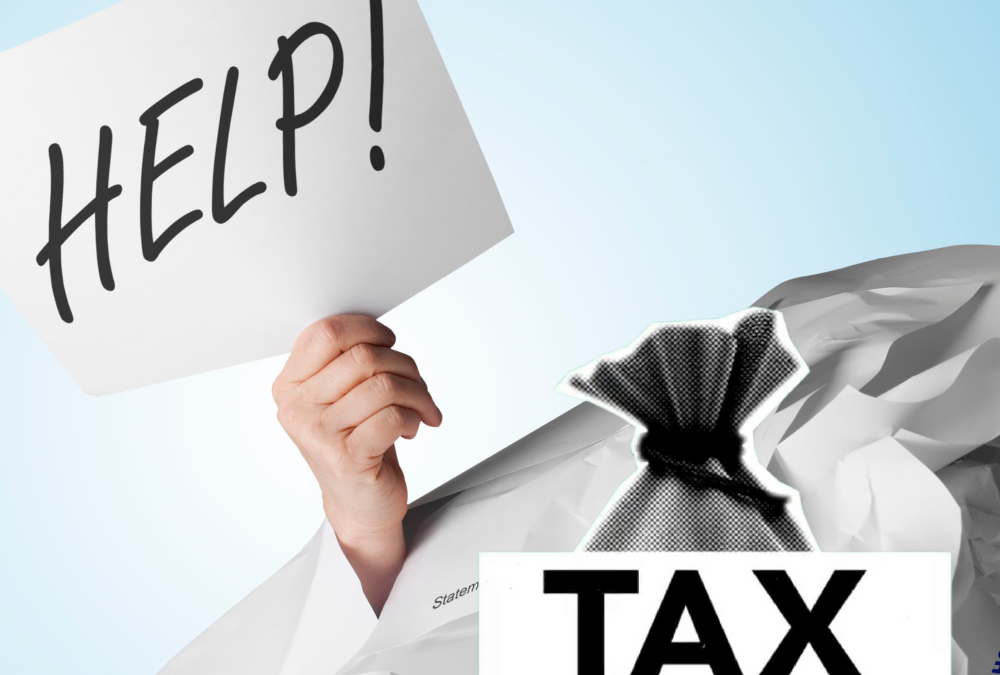Why Small Businesses Are Drowning in Tax, Debt, and Silence
“A 5-Part Reality Check for NZ Business Owners Who Still Want to Win the Game — or Redesign It”
1. Govt Turns on Small Businesses After Feeding Them Poisoned Candy
The IRD’s tax crackdown isn’t about fairness. It’s about cleanup after a sugar high the Government handed out.
Small businesses across New Zealand are drowning under a tidal wave of unpaid GST and PAYE—and the Government has just sent in the debt collectors.
According to IRD data reported this week, more than $1.47 billion in unpaid tax is now owed for the 2025 tax year alone. That’s not a typo. That’s GST and PAYE from mostly still-trading businesses—ones who collected taxes on behalf of the Government but spent the money trying to survive instead.
Now the same government that flooded the market with pandemic-era stimulus, wage subsidies, and inflationary policies has decided it’s time to “get serious” about enforcement. It’s issuing warnings, pushing legal demands, and funding new enforcement teams.
You can’t make this up.
The Sugar Rush You Were Never Meant to Survive
Let’s rewind. During COVID, many small businesses were told: “Here’s some money to get you through.” Wage subsidies, cheap loans, deferrals. Not one of those solutions addressed whether the underlying business model was viable. Not one assessed whether the owner could weather what was coming next.
They handed out just enough candy to avoid collapse—not enough to grow healthy again. And now, three years later, the sugar crash is here.
What we’re seeing now isn’t a surprise. It’s the inevitable hangover from a government trying to buy short-term stability without long-term responsibility. Small businesses were used as shock absorbers for the wider economy—absorbing labour market pressure, inflation, and public expectations, all while being asked to stay grateful for the “help.”
And now the IRD, newly emboldened with $64 million in enforcement funding, is knocking on the door to collect. Not gently. Not strategically. Just… loudly.
What This Really Means
If you’re one of those businesses behind on PAYE or GST, you’re not alone. But let’s be clear:
- This crackdown is not about fairness. It’s about cleaning up the books after economic mismanagement.
- This isn’t a moral failing on your part. You were given candy when what you needed was protein.
- You cannot rely on the same system that helped get you here to help get you out.
This isn’t to say tax debt doesn’t matter. It does. GST and PAYE are trust funds—you’re legally obligated to pass them on. But when hundreds of millions are in arrears from otherwise viable businesses, that’s not an individual failure. That’s a structural signal.
What Happens Next
If you don’t act early, the fallout compounds:
- Interest and penalties stack up.
- IRD’s patience disappears.
- Liquidation becomes a real option—and not always the worst one.
You must be brutally honest about what kind of business you’re running:
- Can it truly pay its bills, debts, taxes and pay you properly?
- Or have you been quietly bleeding just to keep up appearances?
Either way—this is your line in the sand moment.
Other Perspectives You Need to Hear
This article is just one lens. There are others:
- In Part 2, we ask: If thousands of businesses are failing, doesn’t that say something about government policy? The field is tilted. The rules are off.
- In Part 3, we explore a harder truth: Maybe the model most small businesses are using was never capable of paying all the bills—including tax. It’s time to stop blaming owners and start asking if the default design is broken.
What to Do Now
If you’re behind, unsure, or quietly panicking:
- Talk to your accountant (or someone better).
- Call IRD before they call you. Time-to-pay options are still on the table—for now.
- Download this free Business Survival Matrix with practical strategies to stop the bleeding and get back to basics. (Coming in Part 5)
And if you already know your business can’t be saved as it stands, stop bailing water and start building a better one. It’s not failure to walk away from a sinking ship. It’s intelligence.
Closing Thought
The government gave small businesses poisoned candy. It was sweet at first. But now the wrappers are empty, the bills are due, and the IRD has shown up to clean up the mess.
If you’re tired of being treated like both the scapegoat and the safety net, it’s time to stop playing their game.
You’re not here to survive.
You’re here to build something better.

